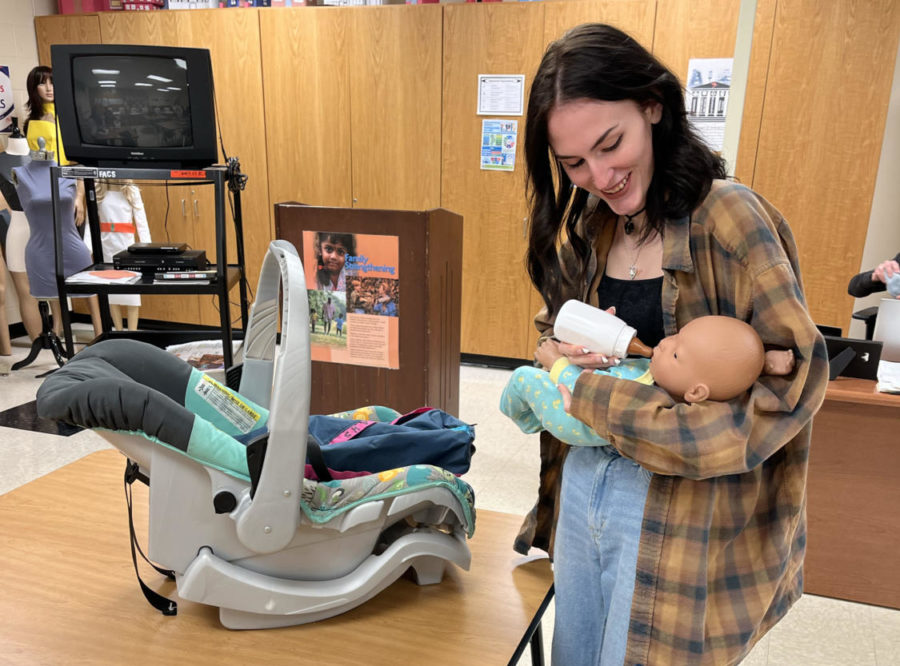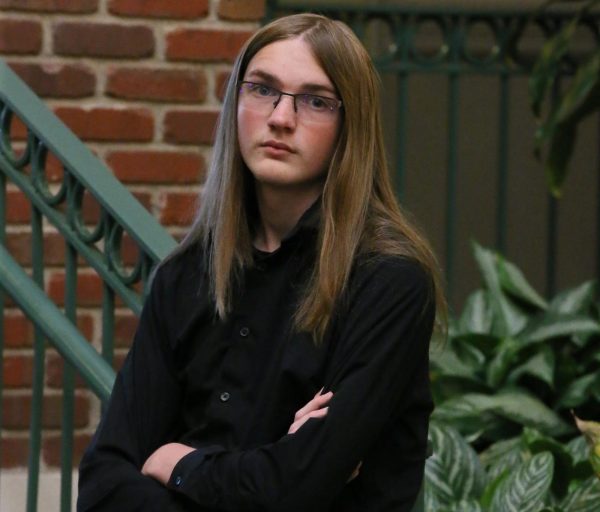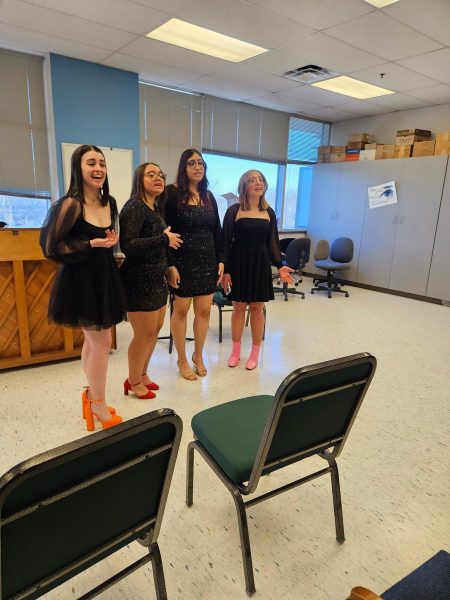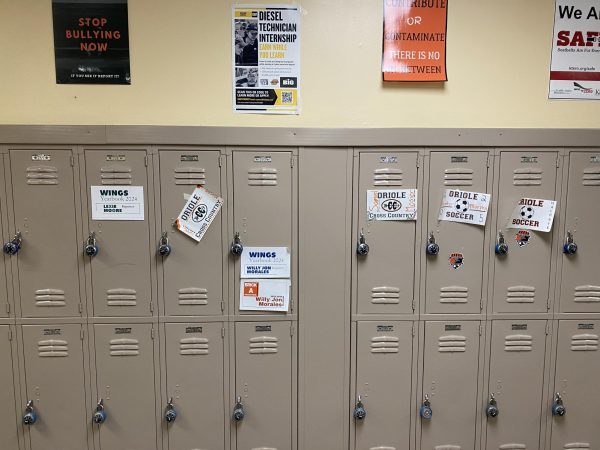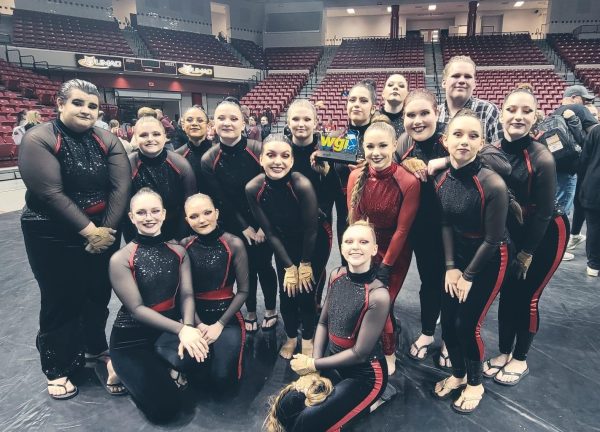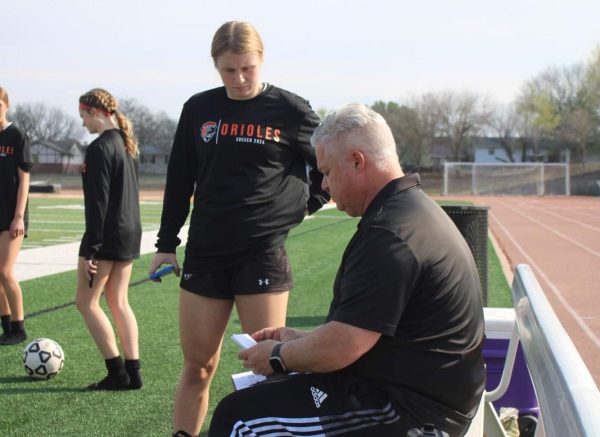Students experience life with electronic baby
Senior Breanna Latimer learns how to care for the electronic baby in her class human growth and development. As she tries to calm the baby from crying, she learns the proper way to feed the baby.
The electronic baby is a well-known assignment in the human growth and development class FCS teacher Kathy Newcom teaches. The baby helps students learn life skills, and caring for a baby. Some students only spent the night with the baby while others had it for the whole weekend.
“She tells us we have different cycles that we go through,” senior Taylor Hall said. “She says sometimes you might have a baby that wakes you up every night, and others that won’t.”
Freshman Juliauna Cotton had the baby for one night. Cotton had the baby from 4 p.m. to 7 a.m. when the baby was scheduled to shut off. It was just one night, but Cotton did have some struggles.
“I was trying to take a shower, and it started crying, and I had soap in my eyes, and I was trying to feed it, and it was really hard,” Cotton said.
Although Cotton has previous experience with babysitting, she found some differences between babysitting a real baby and an electronic baby.
“I did a lot of babysitting things over the summer, so I had experience with it, but it was just different because it was a robot and not an actual baby, so I treated it a little differently,” Cotton said.
With the electronic baby, it would occasionally cry, but soon after the crying would stop once the proper care was given. With real babies, the caregiver needs to be more interactive, and give more attention. The electronic baby has a few solutions, like feeding it, changing its diaper and burping it. However, the real baby has endless needs that take more solutions.
Junior Teegan Wells, who had the baby over the weekend, also had some struggles even though she had experience as a babysitter. Teegan said the electronic babies cried more than a real baby usually does.
With babysitting being something some teenagers like to do. Most of the students who have previous experiences with babysitting noticed some differences.
Freshman Kylee Wells said the main difference to her was the fact that the electronic baby did not talk. Instead, it mumbled or cried when it needed something, making the experience with the electronic baby and a real baby different for her.
Going out is another struggle some students faced. While Teegan tried to stay in, Kylee went to the soccer game with the baby. Others like senior Breanna Latimer did other activities with the baby.
“It wasn’t too bad, but it was new having to bring something that big with me everywhere I went. My mom actually made me go grocery shopping by myself with the baby,” Latimer said, “It was definitely different, and a lot of people stared or shot weird looks, but it wasn’t too bad to get over.”
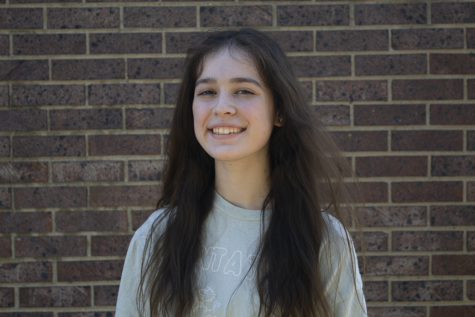
Senior Alex Quezada is a first-year reporter on the Oriole staff. She enjoys spending time with her friends, going horseback riding and ice skating at...



